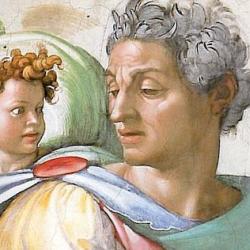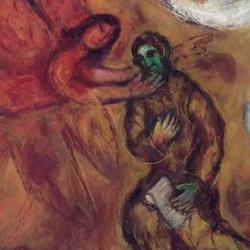INTRODUCTION
From the opening chapters of Genesis, the Bible tells the story of two peoples, two cities, which are characterized by radically different desires and aims. They are the dead who never rise (Isaiah 26:14) and the dead-and-risen, who will be reborn from the earth (26:19).
THE TEXT
“The way of the just is uprightness; O Most Upright, You weigh the path of the just. Yes, in the way of Your judgments, O Lord, we have waited for You; the desire of our soul is for Your name and for the remembrance of You. With my soul I have desired You in the night, yes, by my spirit within me I will seek You early . . . .” (Isaiah 26:7-27:1).
DESIRE OF THE SOUL
Verses 7-10 contrast the ways of the righteous and the wicked. The Lord, the Upright One, makes the path of the righteous smooth and level (v. 7). They walk in obedience to God’s judgments (v. 8). Meanwhile, the wicked never learn righteousness. Despite the favor they receive, they continue to act unjustly, and they never see Yahweh’s majesty or His hand (vv. 10-11). Righteous and wicked behave differently. But Isaiah emphasizes the desires of the righteous more than their conduct. In Scripture, the “soul” is the center of desire. Souls hunger, thirst, yearn, pant, and pour out their griefs and joys. The soul of the righteous is a soul that hungers and longs for God. Along the way of God’s judgments, the righteous wait eagerly for the Lord; His name, the memory of His acts and character, are the delight and desire of their souls; during the night, the righteous long for and seek God (vv. 8-9). We are what we desire, and the righteous and the wicked differ in their hungers.
THE DEAD
Even the righteous falter and fail, and so even for the righteous Yahweh’s peace, His restoration of harmony, order, and abundance, is a gift (v. 12). This is why desire for God is so basic: Israel’s redemption does not depend on her faithfulness in covenant but on God’s faithfulness to His promises. Those who cling to Him in desiring faith are saved. As for the rest, the “other masters” who have ruled Israel (v. 13), they go down to the grave and remain there, without remembrance (v. 14). God is the God of life, and those who do not seek Him are rephaim , “shades” (v. 14).
EARTH MOTHER
Even when Israel does seek Yahweh, they may seem to be dead. They seek Him in distress, crying out and writhing like a woman in labor (vv. 16-17), but they give birth only to wind (v. 18). Even those who seek God seem to end up as shades in the grave (v. 19). But when Yahweh restores Israel, those who died beforehand will share in that restoration. Earth herself will become a woman in labor, and give birth to the dead, who will rise like dew from the dust (v. 19).
LEVIATHAN
The resurrection of Israel is also Yahweh’s moment of victory over His enemies. He visits the earth to uncover the blood that cries like Abel’s from the ground, so that bloodguilt is no longer hidden (vv. 20-21). And He will punish the serpent, Leviathan. Leviathan is a great sea monster, a creature of God (Job 41:1; Psalm 104:26), but in Psalm 74:14 Leviathan is equated with the sea and with Egypt. Yahweh cut the sea monster in pieces when He made Israel pass through the Red Sea. Here, Leviathan becomes a symbol of Satan, and Isaiah prophesies a future exodus when Yahweh will destroy the power not only of evil empires like Egypt but of Satan Himself.










